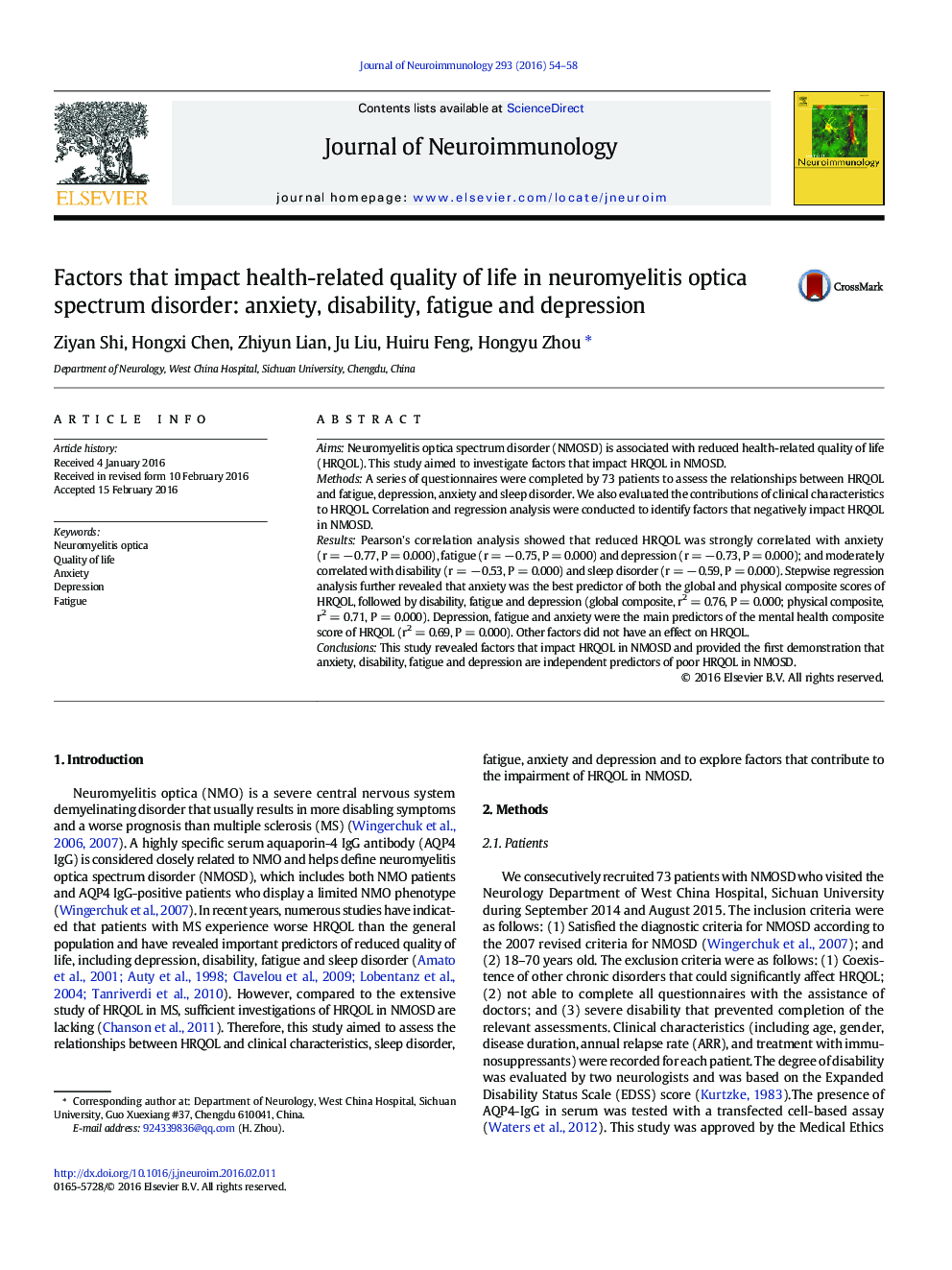| کد مقاله | کد نشریه | سال انتشار | مقاله انگلیسی | نسخه تمام متن |
|---|---|---|---|---|
| 3063844 | 1580381 | 2016 | 5 صفحه PDF | دانلود رایگان |
• There is no significant difference in HRQOL among the subgroups of gender, AQP4-Ab or treatment with immunosuppressants.
• A poor HRQOL were significantly correlated with anxiety, fatigue, depression, disability and sleep disorder.
• Age,disease duration and annual relapse rate showed no effect on reduced HRQOL.
• Anxiety, disability, fatigue and depression were independent predictors of poor HRQOL in NMOSD.
AimsNeuromyelitis optica spectrum disorder (NMOSD) is associated with reduced health-related quality of life (HRQOL). This study aimed to investigate factors that impact HRQOL in NMOSD.MethodsA series of questionnaires were completed by 73 patients to assess the relationships between HRQOL and fatigue, depression, anxiety and sleep disorder. We also evaluated the contributions of clinical characteristics to HRQOL. Correlation and regression analysis were conducted to identify factors that negatively impact HRQOL in NMOSD.ResultsPearson's correlation analysis showed that reduced HRQOL was strongly correlated with anxiety (r = − 0.77, P = 0.000), fatigue (r = − 0.75, P = 0.000) and depression (r = − 0.73, P = 0.000); and moderately correlated with disability (r = − 0.53, P = 0.000) and sleep disorder (r = − 0.59, P = 0.000). Stepwise regression analysis further revealed that anxiety was the best predictor of both the global and physical composite scores of HRQOL, followed by disability, fatigue and depression (global composite, r2 = 0.76, P = 0.000; physical composite, r2 = 0.71, P = 0.000). Depression, fatigue and anxiety were the main predictors of the mental health composite score of HRQOL (r2 = 0.69, P = 0.000). Other factors did not have an effect on HRQOL.ConclusionsThis study revealed factors that impact HRQOL in NMOSD and provided the first demonstration that anxiety, disability, fatigue and depression are independent predictors of poor HRQOL in NMOSD.
Figure optionsDownload high-quality image (64 K)Download as PowerPoint slide
Journal: Journal of Neuroimmunology - Volume 293, 15 April 2016, Pages 54–58
